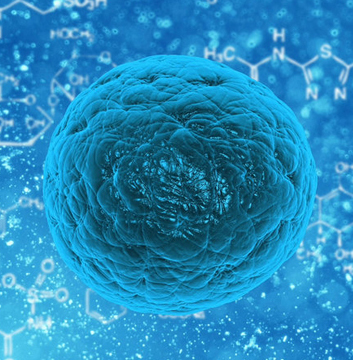
A Cancer Research UK-funded study, published in Cell Genomics, has revealed that prostate cancer, which affects one in eight men in their lifetime, includes two different subtypes termed evotypes. The discovery was made by an international team led by the University of Oxford, and The University of Manchester, who applied AI (artificial intelligence) on data from DNA to identify two different subtypes affecting the prostate. The team hope their findings could save thousands of lives in future and revolutionise how prostate cancer is diagnosed and treated. Ultimately, it could provide tailored treatments to each individual patient according to a genetic test which will also be delivered using AI.
The ground-breaking research, which involved additional funding from Prostate Cancer Research and involved scientists from the University of Oxford, the University of Manchester, the University of East Anglia and the Institute of Cancer Research, London, highlights how a prostate cancer diagnosis can affect physical, emotional and mental wellbeing.
Lead researcher Dr Dan Woodcock, of the Nuffield Department of Surgical Sciences at the University of Oxford, said: ‘Our research demonstrates that prostate tumours evolve along multiple pathways, leading to two distinct disease types. This understanding is pivotal as it allows us to classify tumours based on how the cancer evolves rather than solely on individual gene mutations or expression patterns.’
The researchers worked together as part of international consortium, called The Pan Prostate Cancer Group, set up by scientists at The Institute of Cancer Research (ICR) and The University of East Anglia to analyse genetic data from thousands of prostate cancer samples across nine countries.
Crucially, the team’s collaboration with Cancer Research UK (CRUK) aims to develop a genetic test that, when combined with conventional staging and grading, can provide a more precise prognosis for each patient, allowing tailored treatment decisions.
The researchers used AI to study changes in the DNA of prostate cancer samples (using whole genome sequencing) from 159 patients.
They identified two distinct cancer groups among these patients using an AI technique called neural networks. These two groups were confirmed by using two other mathematical approaches applied to different aspects of the data. This finding was validated in other independent datasets from Canada and Australia.
They went on to integrate all the information to generate an evolutionary tree showing how the two subtypes of prostate cancer develop, ultimately converging into two distinct disease types termed ‘evotypes’.
Dr Rupal Mistry, CRUK’s senior Science Engagement Manager, said: ‘The work published today by this global consortium of researchers has the potential to make a real difference to people affected by prostate cancer. The more we understand about cancer the better chance we have of developing treatments to beat it. We are proud to have helped fund this cutting-edge work, which has laid the foundations for personalised treatments for people with prostate cancer, allowing more people to beat their disease.’
